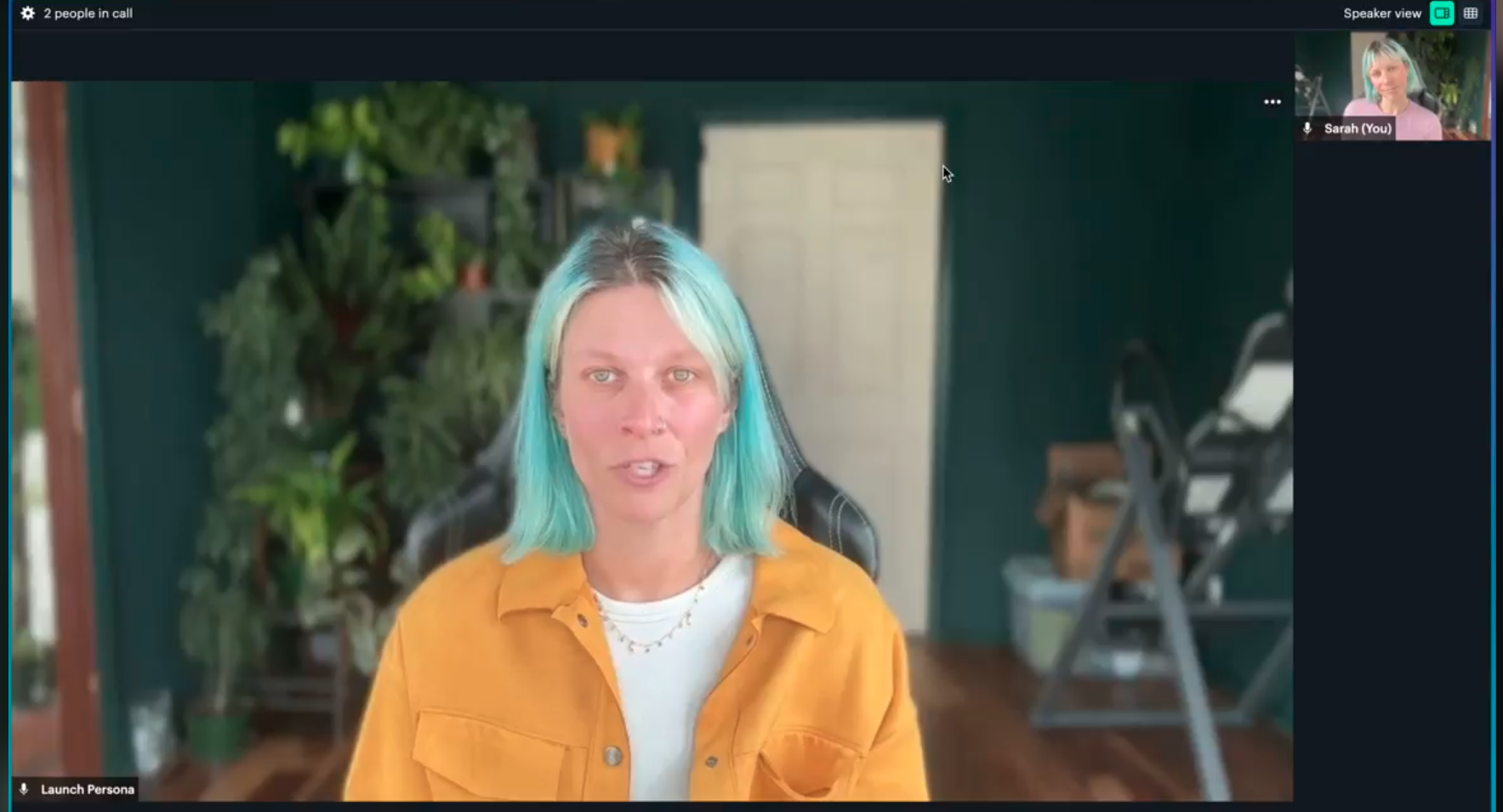
“More human than human” is the tagline for the company that produces replicants, the bioengineered humans that run amok in the classic science-fiction film “Blade Runner.”
“More Humanly than human” could very well be the pitch on a new product from Seattle-based recruiting software startup Humanly, which unveiled its new “AI interviewers” on Wednesday.
Billed as an “AI-powered solution that allows you to interview every candidate over video, any time of day, without sacrificing quality, structure, or human insight,” Humanly views its agentic AI solution as a scalable way to unburden hiring teams that are overwhelmed by intense candidate interest, tight timelines and high expectations.
Humanly touted the launch in a blog post and CEO Prem Kumar talked it up on LinkedIn, sharing a video in which an AI version of Humanly People Operations Manager Sarah Bernstein interviewed the real Bernstein about a fictional role as a customer support representative at a fictional company called Acme.
“Now you can interview the world, equitably, and spend human time on the best fits,” Kumar wrote, citing data that says that only about 5% of job candidates get to a human job interviewer.
Founded in 2018, Humanly already uses a variety of automation software to help companies screen job candidates, schedule interviews, automate initial communication, run reference checks, and more. It competes against a wide swath of recruiting startups and larger platforms and has raised $24 million to date.
Many of Humanly’s customers are large companies outside of the tech industry that hire in high volumes.
In the 5-minute demo video (below), the AI interviewer comes across as a realistic-looking video version of Bernstein, if not a tad bit robotic. The AI stares directly into the camera, occasionally tilting its head, wrinkling its brow and offering up slight smiles as the real Bernstein answers questions and describes how she’s suited for the (fake) role.
There’s no AI toddler wandering into the background and no AI dog barking in the distance. The video is devoid of any human-generated spontaneity or emotion such as surprise or laughter. It signs off like it’s reading an email.
Humanly said the AI interviewer was built using analysis from more than 4 million interview interactions and its work “with leading recruiters to define what makes the ‘anatomy of a strong interview.’”
The startup also partnered with Katherine Hilton, a linguistics lecturer at Stanford, and Grin Lord, co-founder and CEO of Bellevue, Wash.-based mpathic, a startup whose software analyzes workplace communication. The goal was to reduce bias and improve predictive accuracy, according to Humanly.
After an AI interviewer meets with a job candidate, the program provides feedback to a recruiter, highlighting strengths, gaps, and fit. It generates a candidate score and offers a recommendation on whether the candidate should move on to the next round of interviews.
In comments on his LinkedIn post, some expressed misgivings about what Kumar and Humanly have built, while others celebrated it as a breakthrough.
“Unfortunately, I’m not as impressed,” wrote Aisha Bower, a product designer and AI enthusiast, according to her LinkedIn profile. “It falls short of a genuine human experience and could leave interviewees feeling less than seen and heard. They may wonder if the AI agent will represent them accurately to the employer. They may also feel that a company utilizing this for screening is too impersonal, undermining trust.”
Bower suggested it could be a good tool marketed to people privately trying to test out their interview skills in preparation for a live session. Startups such as Seattle-based Yoodli offer AI roleplay products along these lines.

Kumar responded by saying that the product is not intended as an AI vs. human comparison. Rather, it’s an AI vs. being ignored scenario, in which candidates at least get to feel as if they’re moving along in a job search process and not being ghosted.
“The end goal for us is not to feel like a genuine human. I think that boundary needs to be clear,” Kumar wrote. “But to be human enough to make the candidate feel comfortable in providing detailed enough inputs to be fairly evaluated. Sometimes even more comfortable than a convo with an actual human.”
Kumar also noted that there’s a candidate fairness aspect at play, theorizing that if a job posting attracts 4,000 inbound applicants, not only will many be ignored, but interview bias will creep in during human-to-human interaction.
The New York Times summed up the trend particularly well in a story earlier this month: “You thought artificial intelligence was coming for your job? First, it’s coming for your job interviewer.”
While resume screening and meeting scheduling has become an accepted, automated aspect of job searches, autonomous interviewers are popping up from a variety of companies. It’s adding AI to a part of the process that has long seemed to most need a human touch, as the Times put it.
Some job seekers who spoke to the Times called their interactions with AI “dehumanizing,” or they wondered whether there was a job at all and if they were just part of an experiment designed to train the AI.
In response to one comment on LinkedIn, about whether her AI could just do all the work while she’s on vacation, Bernstein joked that she’s not sure if Kumar would notice the difference at this point.
